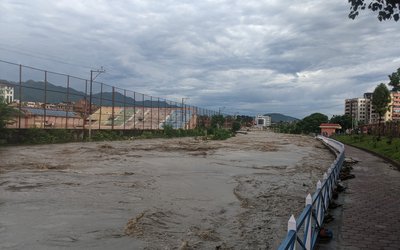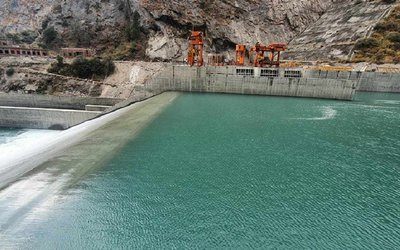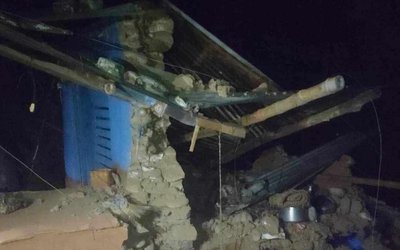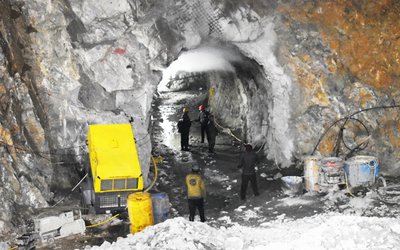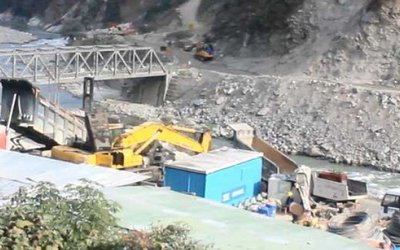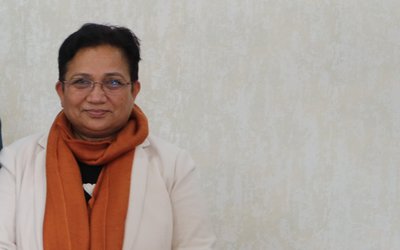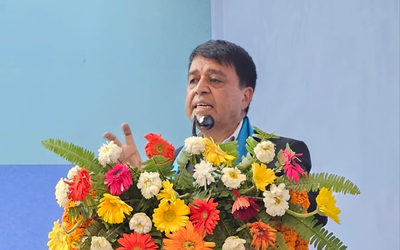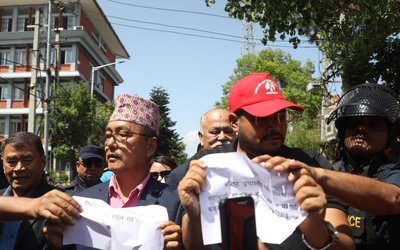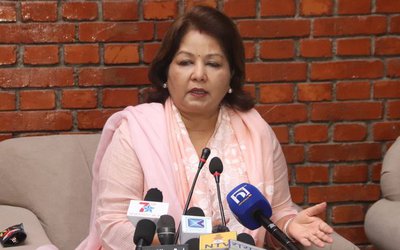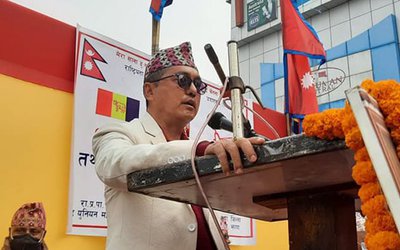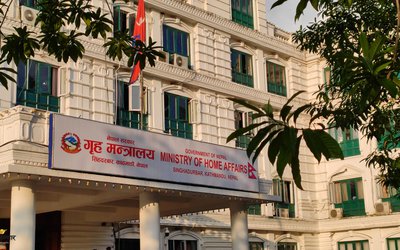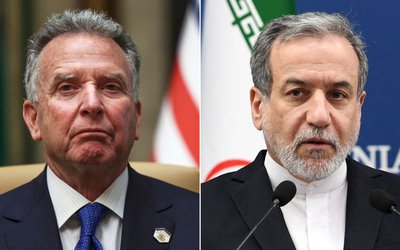
Although there is a long way to go for Nepal and Bangladesh to trade energy through the transmission lines passing from India, the recently signed MoU is the first step towards opening the possibility.
After much discussion and homework, Minister for Energy, Irrigation and Water Resources Barsha Man Pun and Nasrul Hamid, state minister for power, energy and mineral resources of Bangladesh, inked the MoU.
“I would like to take this opportunity to express my gratitude to the Government of the People's Republic of Bangladesh for your eagerness to enter into such cooperation. The government of Nepal was also in favor of this MOU from the day proposed by your side. However, due to the political transition in our country, we had to wait a few years before we could hold this meeting. With the end of political transition and strong government in place, our priority has shifted to make Nepal prosperous by utilizing the rich water resources that nature has bestowed on us. We are aware that present government of Bangladesh has a great contribution in its economic growth. Therefore, I believe that the cooperation in the field of power sector that we intend to frame for the mutual benefit of both the countries has come at the right time,” “said Minister Pun.
“We have set a target to generate 15,000 MW of hydroelectricity in ten years and we intend to set aside 5000MW for external power trade. The seasonal complementarities arising from the electricity demand pattern existing in the neighboring countries, including yours, justifies the mutual cooperation among us. This situation has created an opportunity to have sub regional electricity trade among us and get benefitted.”
At this stage, he said, we need to build on the existing bilateral mechanisms between Nepal-India and India-Bangladesh to achieve sub regional cooperation. “That’s why I believe that cooperation through the MOU that we are about to enter will serve not only as an important platform to strengthen our cooperation in power sector but also as a stepping stone in our continuous effort in realizing the aspiration to achieve energy security through regional/sub regional cooperation,” said the minister.
Thanking Nepal government for the MoU, Minister Hamid said: “It was signed after a long wait. I hope this will help to open our markets to Nepal’s hydropower. Both should increase cooperation for development in power and communications sectors.”
According to Bangladesh’s master-plan, a part of the goal to supply 40,000MW power by 2030 will come from imported power and Nepal will have surplus power in ten years.
“I have released a White Paper on current situation and future road map for Energy, Water resources and Irrigation Sector. We have set a target to generate 15,000 MW of hydroelectricity in ten years and we intend to set aside 5000MW for external power trade.,” said Minister Pun.
Apart from the import of hydro-electricity from Nepal through India, the MoU includes investments by Bangladesh in Nepal’s power sector. “Nepal has the prospects of producing 40,000MW of hydropower and Bangladesh’s state-run and private companies can invest in future projects in the Himalayan country,” said minister Hamid.
After the MoU, a working group and a steering committee will be set up work on increasing the cooperation in the power sector between the two countries.
As the Bangladesh Power Development Board has signed an MoU with GMR Energy to buy electricity from the project through a cross-country grid via India, the present MoU will further help materialize power trading.
Bangladesh has been importing 500MW of electricity from India’s Bahrampur and 150MW from Tripura. The government plans to import more power from India in future.
According to MoU, a joint executive committee at the Energy Secretary level and the joint technical group at the Joint Secretary level will be set up for bilateral collaboration and cooperation. According to minister Pun, the two bodies would convene their meetings within the coming two months to determine the future course of action.
The minister said that Bangladesh has set a target to graduate to the league of developed countries by 204 and it needs around 60,000 MW power to meet the target.
Minister Hamid said that with economic growth of 7.2 percent, Bangladesh needs 24,000 MW electricity by 2021.
“As we have signed MoU, we will hold talks with India on the issues of a transmission line,” both ministers said at the press meet.
The MoU will set up a power secretary-level joint steering committee and joint secretary-level joint working group, which will meet every year, and discuss and take forward the issues related to the cooperation in power sector.
“It is a general MoU on energy cooperation. Through this, both the countries will strive towards cooperation in hydroelectricity, solar, wind and other sources of power by setting up bilateral mechanisms,” said Mashfee Binte Shams, ambassador of Bangladesh to Nepal. “The joint mechanisms will start working on specific areas, sharing information and exploring the opportunities for investment in solar, hydropower and power grid transmission line to materialize the cooperation in power sector over the period.”
Nepal Celebrates International Youth Day
International Youth Day 2018 was celebrated throughout Nepal organizing various programs. On the occasion, outstanding young Nepalis, who have shown dedication, innovation and passion for development in their work, have been awarded. ILO Nepal Director and acting UN Resident Coordinator Richard Howard addressed the program. He highlighted the role of youth in SDGs.
“Creating safe space for youth is vital but doing so we need to ensure no youth is left behind. We are committed to create safer space for youth within the spirit of the SDGs & ensuring everyone has an equal representation on it,” said Richard Howard, UN Resident Coordinator a.i.
Organized by the National Youth Council, over 500 young participants attended the National Youth Conference discussing Safe Spaces for youth and ways to help young Nepalis contribute to achieving the SDGs.
“The Constitutional Assembly Election in 2017 opened avenues for young people to be in parliament. It is now our responsibility to make that participation meaningful by creating platforms for opportunities,” says Mohammad Ishtiyak Rai, Minister for Urban Development.
- NEPAL-THAILAND: Joint Business Council
- Apr 13, 2025
- BIMSTEC SUMMIT: Nepal’s Stand
- Apr 11, 2025
- IME GROUP: Expands Into Paper Industry
- Mar 24, 2025
- CPN UML: Instigated By India
- Mar 23, 2025
- ADB’S CHIEF ECONOMIST: Nepal Reduces Poverty
- Mar 11, 2025
